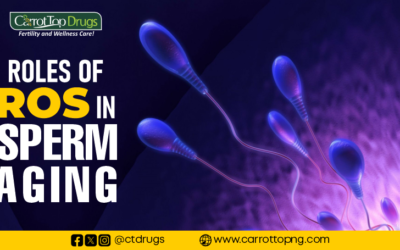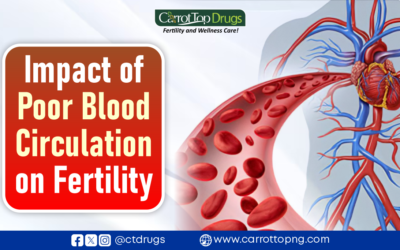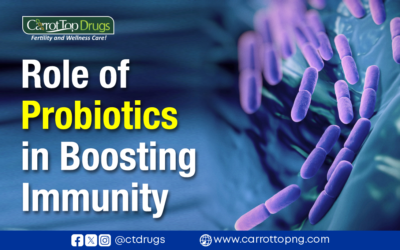Introduction
Sperm quality is one of the factors that affect male fertility. The percentage of males with infertile sperm is increasing and it is becoming a major concern for couples who want to have children.
Many factors can affect the quality of sperm, such as age, environmental toxins, smoking and alcohol use, certain medications, and certain medical conditions. This simply means that they affect male fertility.
Some of these factors that affect male fertility can be controlled while others cannot. It is important to know the risks and take necessary precautions to keep sperm healthy.
In this article, we would be examining the common risk factors you need to look out for to keep your sperm active and boost your fertility as a man.
Risk Factors That Can Affect Male Fertility
-
Age
The age of a man is one of the most important factors when it comes to fertility—the quality and quantity of his sperm decreases with age. However, sperm production doesn’t stop completely with age and can continue for decades, unlike women. Research shows that aging can affect male fertility. The reason is simply because aging affects the quality and quantity of sperm in men. It also affects their fertility levels. This is because aging makes it more difficult for the body to produce sufficient amounts of testosterone, which is needed for sperm production.
-
Poor Diet
A poor diet has a huge effect on fertility in males. Recently, more men are increasingly consuming junk food, and this can have a negative effect on sperm quality. Junk food is a major kind of food that has been shown to be one of the leading causes of male infertility. Poor diet can significantly affect male fertility by decreasing sperm production and quality. Consuming a diet high in processed foods, trans fats, and added sugars while lacking in essential nutrients can lead to hormonal imbalances and impair sperm function.
A study found that men who consume fast food have a 25% lower sperm count than those who don’t eat fast food. These bad foods affect male fertility. Studies have shown that men who consume a diet high in saturated fats, processed meats, and sugar-sweetened beverages have decreased sperm concentration and motility, as well as abnormal sperm morphology. In contrast, a diet rich in antioxidants, vitamins, and minerals can promote healthy sperm production and function.
Furthermore, an article in the Journal of Human Reproduction found that men who consumed more than two servings of fruit and vegetables per day had higher levels of testosterone and higher sperm counts.
Infertility may be associated with low levels of vitamin C and zinc, a mineral necessary for proper prostate function. Insufficient amounts of these nutrients can cause sperm to bind together, thus reducing their effectiveness. This reduction of vitamins and some other factors may affect male fertility.
The link between diet and male fertility is having a balanced diet and inculcating healthy dietary habits.
-
Smoking
Smoking can significantly affect male fertility by decreasing sperm production, motility, and quality. The chemicals in cigarettes can damage the DNA of sperm, impairing their ability to fertilize an egg and increasing the risk of genetic abnormalities in offspring.
Studies have shown that men who smoke have a lower sperm count and a higher percentage of abnormal sperm morphology compared to non-smokers. In addition, smoking can also cause erectile dysfunction, which can further impact male fertility.
Furthermore, smoking can also affect the production of hormones, such as testosterone, which are essential for healthy sperm production. Nicotine in cigarettes can interfere with the function of the testicles. This can lead to decreased testosterone production and impaired sperm function.
It is important for men who are trying to conceive to quit smoking to improve their chances of fertility. If you are experiencing infertility or are concerned about the impact of smoking on your fertility, it is recommended to consult with a healthcare professional for proper diagnosis and treatment.
-
Exposure to Pollution and Environmental Factors
Pollution in recent times has become a global problem that is affecting people all over the world. It has been linked to health problems, such as male infertility.
Pollutants affect male fertility in two ways; by increasing the temperature of the testicles and by decreasing sperm count.
It often increases the temperature of the testicles, which can cause them to produce less sperm. Pollution also decreases sperm production by decreasing testosterone levels.
Pollution is more than just smog and toxic particles in the air. It can also lower testosterone levels, thus reducing sperm production in men.
The environment is one of the most important factors that can affect male reproductive health. One of the environmental factors that affect male reproductive health is air pollution. Air pollution can cause a variety of problems, such as heart disease, lung cancer, and other respiratory problems.
Another environmental factor that affects male reproductive health is water pollution. Water pollution can lead to diseases such as cholera, typhoid fever, and hepatitis A.
Lastly, the environment also affects male reproductive health through toxic chemicals in food. For example, pesticides in produce may have harmful effects on fertility if consumed over long periods or in large quantities.
-
Excessive Stress
Men who have high levels of stress may have a lower sperm count and poorer motility, which can make it harder to conceive.
Some studies have found that men with chronic stress have lower sperm counts than those who don’t experience as much anxiety. In one study, men who received psychotherapy for depression had normal levels of sperm after six months.
While the average sperm count in men has been dropping for the past 50 years, a new study indicates that psychotherapy can have a positive effect on sperm levels. This is great news for couples who are having trouble conceiving or struggling with infertility issues.
With the rise in technology, we are constantly connected to the world and there is no break from work. We have all seen how stress can take a toll on our mental and physical health, but what does it do to our bodies? Stress levels are often measured by cortisol levels in the blood which is a hormone that is released when we feel stressed.
Cortisol levels are due to high stress. Stress can have a significant impact on your body and if you aren’t careful, it could lead to serious health problems like obesity, diabetes, heart disease, cancer, or even depression. These conditions definitely affect male fertility.
The main cause of stress is anxiety which affects your nervous system and can make you more susceptible to diseases. It also has an impact on your endocrine system as it affects the production of hormones like testosterone and estrogen.
-
Certain Medications
Some medications can affect sperm production and quality. The medication you are taking may be to blame for your infertility.
Male fertility can be impacted by a variety of factors, some of which are not always as apparent. These factors include some drugs taken by the patient. Studies have shown that men taking certain medications could lead to decreased semen quality, sperm motility, and sperm count. The effects on male fertility can also vary depending on the type of medication and how long it has been taken.
Certain medications like long-term anabolic steroid use, cancer medications (chemotherapy), testosterone replacement therapy, some ulcer medications, some antifungal and antibiotic medications, and some other medications can impair sperm production which would in turn affect male fertility.
Opiates are also a type of drug that can affect sperm health. They are used to treat pain. They are often abused because they produce a feeling of euphoria and relaxation.
The use of opiates can lead to infertility in men. Opiates decrease the production of testosterone and sperm, which causes infertility in men.
If you have been taking any of these types of medication for a long period, it is important to speak with your doctor about any negative side effects that you may have noticed on your sexual health. The doctor will be able to help you find other alternatives that are less likely to cause these side effects and improve your fertility as well as sexual health.
-
Depression and Anxiety
Depression and anxiety are mental disorders that can affect sperm quality. Depression and anxiety can affect male infertility resulting in male infertility, which is a condition in which a man’s sperm cannot fertilize the egg.
In some cases, depression and anxiety can be treated with medication, therapy, or lifestyle changes. However, depression and anxiety may also lead to other health problems like heart disease, diabetes, or obesity.
People who are depressed and anxious face the risk of developing other health problems such as heart disease, diabetes, or obesity.
-
Exposure to Radiation
Radiation exposure can affect male fertility. The radiation can damage the sperm cells and make them incapable of fertilizing the egg. It can also cause genetic mutations in sperm cells, which will result in birth defects.
Radiation exposure can cause infertility. This is not only harmful to men, but it also affects female fertility. There are several factors that can cause radiation exposure. Such as living near power lines or hazardous waste sites or being exposed to a nuclear power plant accident.
-
Tight Underwear
Wearing tight underwear can potentially affect male fertility by increasing scrotal temperature and decreasing sperm production. This is because tight underwear, such as briefs, can cause the testicles to be pulled closer to the body, leading to increased heat and reduced air circulation in the scrotum.
Studies have shown that increased scrotal temperature can damage sperm production and quality, leading to infertility. Additionally, tight underwear can also cause friction and pressure, which can further impact sperm production and quality.
It is important for men who are trying to conceive to wear loose-fitting and breathable underwear, such as boxers, to reduce scrotal temperature and promote healthy sperm production. If you are experiencing infertility or are concerned about the impact of tight underwear on your fertility, it is recommended to consult with a healthcare professional for proper diagnosis and treatment.
-
Alcohol
Many men are unaware of the negative effect of alcohol on sperm production. Alcohol reduces male fertility by damaging the DNA of sperm cells, which can lead to birth defects.
Alcohol is a lot more than simply a social drink. It can have seriously detrimental effects on the body, which is why it’s so important to know the truth behind it.
Alcohol has some positive attributes, but it can also have serious negative effects on the body. Excessive consumption of alcohol is one of the risks that affect male fertility. Studies have shown that alcohol doesn’t just cause addiction, but also increases the risk of developing certain cancers.
-
Excessive Weight
Excessive weight can significantly affect male fertility by altering hormonal balances and decreasing sperm production. Studies have shown that overweight and obese men are more likely to experience decreased sperm count and poor sperm quality, leading to infertility.
Excessive weight can also lead to the production of excess estrogen, which can interfere with normal testosterone production and affect sperm function. In addition, obesity is associated with chronic inflammation, which can also harm sperm production and quality.
Furthermore, excessive weight can cause increased scrotal temperature, which can damage sperm production and quality. Men who carry excess weight around their waistline may be at greater risk of experiencing such adverse effects on their fertility.
Maintaining a healthy weight and lifestyle is important for male fertility. If you are experiencing infertility or are concerned about the impact of excess weight on your fertility, it is recommended to consult with a healthcare professional for proper diagnosis and treatment.
-
Excessive Excercise
Excessive exercise can negatively affect male fertility. While regular exercise can be beneficial for overall health, excessive and intense exercise can cause hormonal imbalances and affect sperm production.
Studies have shown that men who engage in high levels of endurance exercise, such as marathon running or cycling, may experience a decrease in sperm count and quality. This is because excessive exercise can increase the production of the stress hormone cortisol, which can suppress the production of testosterone and impair sperm function.
In addition, excessive exercise can also lead to testicular damage due to increased scrotal temperature and reduced blood flow to the testes, which can further affect sperm production and quality.
It is important for men to maintain a healthy exercise routine, but excessive and intense exercise may have negative impacts on male fertility. If you are experiencing infertility or are concerned about the impact of excessive exercise on your fertility, it is recommended to consult with a healthcare professional for proper diagnosis and treatment.
13. Marijuana
Marijuana use can negatively affect male fertility. This is because the active ingredient in marijuana, tetrahydrocannabinol (THC), can interfere with the production and function of sperm.
Studies have shown that regular marijuana use can decrease sperm count, motility, and morphology, which can affect male fertility. In addition, THC can disrupt the production of hormones such as testosterone, which is necessary for healthy sperm production.
Furthermore, marijuana use can also affect sexual function, leading to difficulties in achieving or maintaining an erection, which can impact male fertility.
It is important for men who are trying to conceive to avoid using marijuana, as it can affect their fertility. If you are experiencing infertility or are concerned about the impact of marijuana use on your fertility, it is recommended to consult with a healthcare professional for proper diagnosis and treatment.
-
Varicocele
A varicocele is a condition in which the veins inside the scrotum become enlarged and twisted. This can cause a decrease in sperm count and quality, leading to infertility in some men.
Varicoceles can significantly affect male fertility by decreasing sperm count and quality. This condition occurs when the veins in the scrotum become enlarged and twisted, leading to increased testicular temperature and impaired blood flow.
As a result, sperm production can be damaged, and the affected individual may experience infertility. It is estimated that varicoceles affect up to 15% of men and can cause oxidative stress and inflammation, which can further harm sperm function.
The condition is more common among men who have had testicular injuries or who have a family history of varicoceles. Men who have varicoceles may experience no symptoms at all or they may experience pain or heaviness in one testicle and one scrotum.
-
Sexually Transmitted Diseases (STDs)
Men are not immune to sexually transmitted diseases. In a recent study, researchers found that some STDs can affect men’s fertility.
The study looked at the effect of STDs on the semen quality of more than 1,200 men. They found that some STDs can reduce sperm count and motility in men. The most common STD among the participants was chlamydia, which reduced sperm count by up to 32%. The study also revealed that gonorrhea and syphilis had a significant impact on sperm production.
The study published in the Journal of Proceedings of the National Academy of Sciences, suggests that the two sexually transmitted diseases may cause a significant impact on sperm production. The two STDs were found to hurt both sperm counts and motility.
Frequently Asked Questions
Q. What is male fertility?
A. Male fertility refers to a man’s ability to produce healthy sperm that can fertilize a female’s egg, leading to a successful pregnancy.
Q. What are some factors that can affect male fertility?
A. There are many factors that can impact male fertility, including age, genetics, lifestyle factors (such as diet, exercise, and smoking), certain medical conditions (like diabetes or sexually transmitted infections), and exposure to environmental toxins or radiation.
Q. Can age affect male fertility?
A. Yes, as men age, their sperm count and quality can decrease, making it more difficult to conceive a child.
Q. Can genetics impact male fertility?
A. Yes, certain genetic conditions like Klinefelter syndrome or Y chromosome deletions can affect male fertility. They do so by reducing sperm count and motility.
Q. Can lifestyle factors impact male fertility?
A. Yes, lifestyle factors like poor diet, lack of exercise, smoking, and excessive alcohol or drug use can all negatively impact male fertility.
Q. Can medical conditions affect male fertility?
A. Yes, certain medical conditions like diabetes, thyroid disorders, and sexually transmitted infections can all impact male fertility.
Q. Can exposure to environmental toxins or radiation affect male fertility?
A. Yes, exposure to toxins like pesticides or heavy metals, as well as radiation exposure, can all negatively impact male fertility.
Q. Can male infertility be treated?
A. In many cases, yes. Treatment options may include lifestyle changes, medication, surgery, or assisted reproductive technologies like in vitro fertilization (IVF).
Conclusion
In conclusion, there are many causes of male infertility. However, it’s not always clear which factor is causing the problem. There are also many things that you can do to improve your fertility before seeking medical treatment. It is necessary therefore for you to examine your lifestyle and diet and make the necessary changes. Our male fertility products such as EVERGREEN FORMULAR FOR MEN and EVERGREEN MOTILITY FOR MEN also contain essential vitamins and minerals that have been shown to greatly improve important sperm parameters such as sperm count, sperm quality, and motility.
In the next article, we would examine how to boost the health of your sperm cells.

















